|
The Story of Egypt: The Civilization that Shaped the World
by Joann Fletcher Published in September 2015 496 Pages Thibault’s Score: 2/5 This book is unimpressive and the writing style is annoying. I was hoping for an in depth history of Egypt with a focus on chronology, statistics, and archeology. Despite the whining of the poets, this “boring” information helps me paint a much better mental picture of the civilization that I am studying than imagery does. This book spends way too much time on the art of ancient Egypt, and the lives of the kings and their preparations for the after life. I don’t really care if Egyptian queens wore make up or not, or if they died their hair, or if they have painted nails or not. This book probably has a lot of appeal to women in their mid 30s, but I am an unemotional and mildly autistic male. The style just isn’t for me. I wish Fletcher would have included a much broader discussion of the geopolitical situation that the Egyptians faced. Who were their neighbors? What kind of conflicts did they have? Instead, Fletcher glosses over the geopolitics. She also doesn’t include much in the way of economic analysis. How did the Egyptian economy function? What type of institutions and governments did they have? What kind of dispute arbitration did they have? I am very curious about Egyptian history, but am instead going to look elsewhere to satisfy my curiosity around the topic.
1 Comment
The Post-American World 2.0
By Fareed Zakaria Published in 2008 and updated in 2012 292 Pages Thibault’s Score: 4/5 Note: I listened to the Audiobook which was read by the author Fareed Zakaria. Hearing the original author’s voice is very welcome, and the audiobook is particularly well produced. Fareed Zakaria’s understanding of the current geopolitical trends are prescient and accurate. His understanding of the coming trends in the world run very deep. This book is an outline of the world in which my children will live. Zakaria describes a world where America’s hegemonic unipolarity has been shattered. This isn’t an apocalyptic book which tries to fear-monger, quite to the contrary I was pleasantly surprised to find that Zakaria works to reassure his readers. The Post-American World is a well written defense of Western values and Free Market capitalism that treats China and India as powerful actors. Despite all of the books strengths, it occasionally falls short. For example, Zakaria predicts that Islamic terrorism will be a minor issue. This book was written before the rise of ISIS, and had Zakaria published this book only several months after he did his analysis would have been completely different. I recommend this book to people with a deep interest in geopolitics, and after reading this book, am left with a deep respect for Zakaria’s analytic abilities. On a last note, Obama is known to have read this book (see the picture below). Obama clearly has good tastes in literature. A History of Strategy from Sun Tzu to William S Lind
By Martin van Creveld Published in March 2015 140 Pages Thibault’s Score: 4/5 Before reading this book I wasn’t particularly interested in military strategy - I just read the book because it was short and I wanted to have a few more insights after my recent investigations into cyber warfare. Holy crap, was I amazed by the richness of the knowledge that this book contained - its style has left me hungry for more books about military strategy. This book is written in very broad strokes, and is a perfect introduction. It covered many of the historical battles I have been previously reading about for the past several months such as the Roman reconquests of General Belisarius. It ends on cyber warfare, which is the topic which brought me to this book in the first place, bridging my passion for Roman history with my curiosity about Cyber Warfare. The writing style is succinct, and up to the point. Sentences are short, and logically constructed. One can easily tell that the book was written by someone who has the mind of a strategist. It also introduced me to the important historical thinkers in the history of warfare such as Sun Tzu, Clausewitz, Vauban, Douhet, and William S Lind. I had always heard of the name “Clausewitz” and vaguely knew that he was a military philosopher, but knew nothing about him. Reading this book has wetted my interest in strategy, and now I have to read Clausewitz. Gobbels: A Biography
By Peter Longreach Published in May 2015 992 Pages Thibault's Score: 2/5 I decided that I had to quit reading this book about 100 pages in because it proved to be a complete snoozefest. This book is excruciatingly long and goes into infinitesimal detail about the early life of Gobbels. I mostly wanted a book that outlined his strategies for propaganda, partially out of historical curiosity, partially so that I can learn how to replicate them. Instead, I found a text detailing Gobbels life story. I didn't have the stomach to read 1000 pages about Gobbels. I don’t want to spend my time reading about sociopathic narcissists, so I decided that this book wasn’t for me. This book probably has an audience for people who like reading the biographies of nut jobs. Kingpin: How one hacker took over the billion-dollar cybercrime underground
By Kevin Pulsen Published in February 2012 288 Pages Thibault's Score: 3/5 After reading Ghost in the Wires, the excellent autobiography of legendary hacker Kevin Mitnick, I had very high expectations. I enjoy reading about cyber warfare, and the developments in the field of cybercrime. This book covers the true story of Max Vision, a white hat who turned to the darkside and became the administrator of the largest credit card fraud website on the internet. Kingpin is a detailed biography of Max Vision, from his childhood until his eventual arrest and trial. I found the book to be, at times, a bit booring. The book isn't written in my favorite style, and Ghost in the Wires: My Adventures as the World's Most Wanted Hacker by Kevin Mitnick
Published in April 2012 448 Pages Thibault's Score: 5/5 Holy crap. I finished reading the book nearly two weeks ago, and I can't stop thinking about it. This is one of the best books I've reviewed so far. No spoilers. Countdown to Zero Day: Stuxnet and the Launch of the World's First Digital Weapon by Kim Zetter
Published in September 2015 448 Pages Thibault's Score: 4/5 In 2009, a computer virus struck Iranian nuclear centrifuges, and led them to self destruct. For the first time in human history, lines of code had caused physical damage. Stuxnet marks the begining of a new modern era of cyberwarfare that has deep reaching consequances far beyond stolen data. Kim Zetter masterfully guides readers through the new dark world of cyber warfare. Reading this book is very important for anyone who is interested in understanding the future of geopolitics. This book is incredibly entertaining and educational, I strongly recommend it. SJWs Always Lie
By Vox Day Published in 2015 236 pages Thibault's Score: 4/5 SJWs always lie is a guide book on how to escape the ire of social justice warriors. Vox Day gives many examples of people who have suffered from SJWs, and how they won or were defeated. He uses many military analogies, and compares the right’s struggle against the doctrine of social justice to a brutal military conflict. Day opens by telling the readers about his own experience with SJWs unfair treatment of his presidential campaign for a science fiction organization. Day boils down much of his advice about SJWs to 3 cardinal rules: 1. Social justice warriors always lie 2. Social justice warriors always project 3. Social justice warriors never back down Using these rules, he gives numerous useful tips and tricks to avoid social justice. This book will not change the opinions of anyone. It is not meant to convince any SJWs to change their ways, or to goad moderates onto our side. Instead, the purpose of this book is to discuss strategies for opposing social justice for people who are already convinced. Overall this book is a good guide for people who already are well educated and aware of the social justice movement. Cuckservative: How "Conservatives" Betrated America
by John Red Eagle and Vox Day Published in December 2015 190 Pages Thibault's Score: 3/5 When I began reading this book, I had very low expectations. I expected this book to be a very boring / repetitive tome about alt right memes. Instead, I found many very compelling arguments about immigration and the betray of America’s right. I found many good and interesting anti-immigration arguments in this book. More interestingly, I discovered that conservatives repeatedly threw out their principles in the name of conciliation. What is a cuckservative? Its a conservative who has let liberals dictate his moral principles. Like the cuckoo bird who shoves the eggs of other birds out of the next and replaces them with its own, the conservatives have replaced their principles with those of their enemies. There are certain parts of this book that struck me as a bit weird. At a certain point, Day writes in the second person “you do this, [etc…] you do that.” Because the bits written in the second person with “you” are very improbable and unreliable, it makes this sections appear propagandistic and awkward. This book is OK. I came in with really low exceptions, and found one that isn't horrible. That being said, I don’t recommend it unless you're deeply interested in the Alt Right. |
Thibault SerletMost of my articles are book reviews, but I also write about many other topics. Archives
December 2023
Categories |
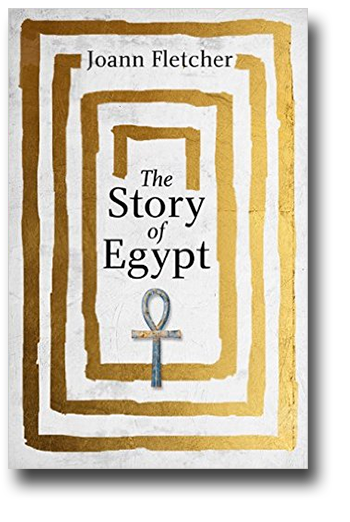



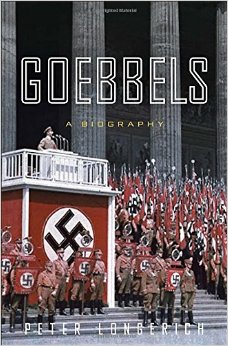
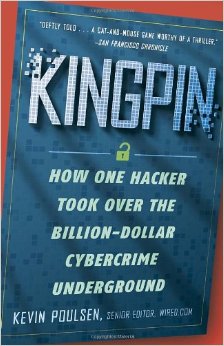
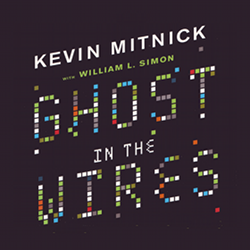
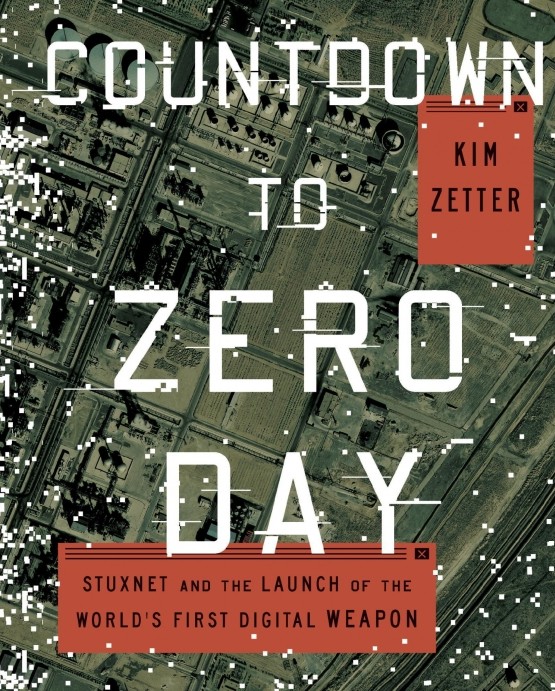
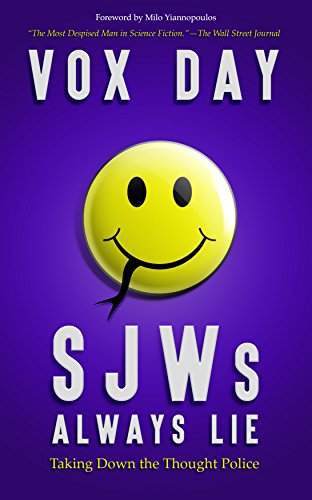

 RSS Feed
RSS Feed